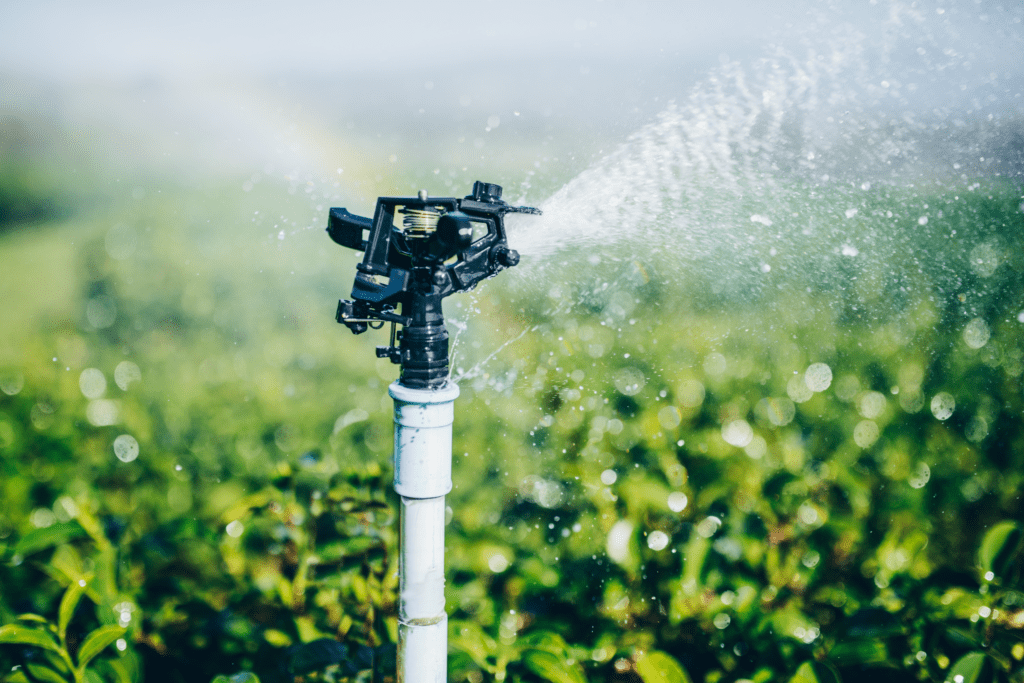Irrigation offers numerous benefits by providing efficient water supply to land and crops, which leads to improved agricultural productivity, landscaping, as well as overall water resource management. Here are 10 benefits of irrigation:
- Water Conservation
- Enhanced Crop Yield and Quality
- Improved Crop Success Rate
- Crop Diversity
- Extended Growing Seasons
- Improved Soil Structure
- Increase Farm Income
- Stable Food Supply
- Consistent Quality
- Water Resource Management
Water Conservation
Irrigation systems are designed to transport water directly to the root systems of plants and crops. As a result, this minimizes water wastage through evaporation and runoff, leading to more efficient water use and conservation.
Increased Crop Yield and Quality
Proper irrigation ensures crops receive a constant and adequate water supply to crops and plants. This contributes to an increase in yield, better crop quality and promoted uniform growth.
Improved Crop Success Rate
Irrigation reduces the risks caused by unpredictable weather patterns, such as droughts or irregular rainfall, by providing a consistent water supply. Allowing for stable food production and preventing crop failures and food shortages.
Crop Diversity
Farmers can grow a wider range of crops, including those that require specific water conditions, when using an irrigation system. It can promote crop diversification and reduces dependence on a single type of crop. As a result, this assists to maintain soil health and improves resilience to pests and diseases.
Extended Growing Seasons
Irrigation allows for the extension of growing seasons beyond natural rainfall periods, enabling farmers to cultivate crops year-round and optimize land use.
Improved Soil Structure
Using a irrigation system can assist to control and prevent soil erosion, improve soil structure and maintain a balanced moisture level. As well as contributes to better nutrient retention by reducing nutrient runoff.
Increase in Farm Income
Higher crop yields and increased agricultural production resulting from irrigation can lead to improved income for farmers, their families, and local economies.
Stable Food Supply
Irrigation plays a crucial role in ensuring a stable food supply by reducing the impact of weather-related fluctuations in crop production. This is particularly important for regions with unreliable rainfall.
Consistent Quality
Irrigation contributes to consistent crop quality since it helps to maintain optimal conditions for growth, reducing the risk of stress-related issues that can affect the quality of produce.
Water Resource Management
Properly planned irrigation systems can help manage water resources more effectively by regulating water distribution, reducing water waste, and preventing over-extraction from natural water sources.
It is however important to note that while irrigation offers numerous benefits, its implementation should be managed carefully to prevent negative consequences such as waterlogging, soil salinization, and the over-extraction of groundwater resources. Sustainable and responsible irrigation practices are essential for maximizing its positive impacts while minimizing the potential drawbacks.
Top 3 Types of Irrigation for Agriculture
The most common irrigation systems used in agriculture are:
- Surface Irrigation
- Sprinkler Irrigation
- Mirco Irrigation – Drip Irrigation or Subsurface Irrigation
Read More: The Top 3 Types of Irrigation Systems for Agriculture.
Reap the Benefits of Irrigation Today!
Our subterranean irrigation system, ecotube, is the most robust and efficient irrigation system on the market. ecotube holds a long list of benefits for your plants such as:
- Yield Increase Of Up To 30%
- Save 58% Of Water And In Some Instances Up To 70%
- Fertilizer Saving
- No Sodification
- Longevity
- Sustainability
- Environmentally Friendly
- Requires Less To No Maintenance
Shop our range of water saving irrigation systems directly from our store or contact us today to place your order!



